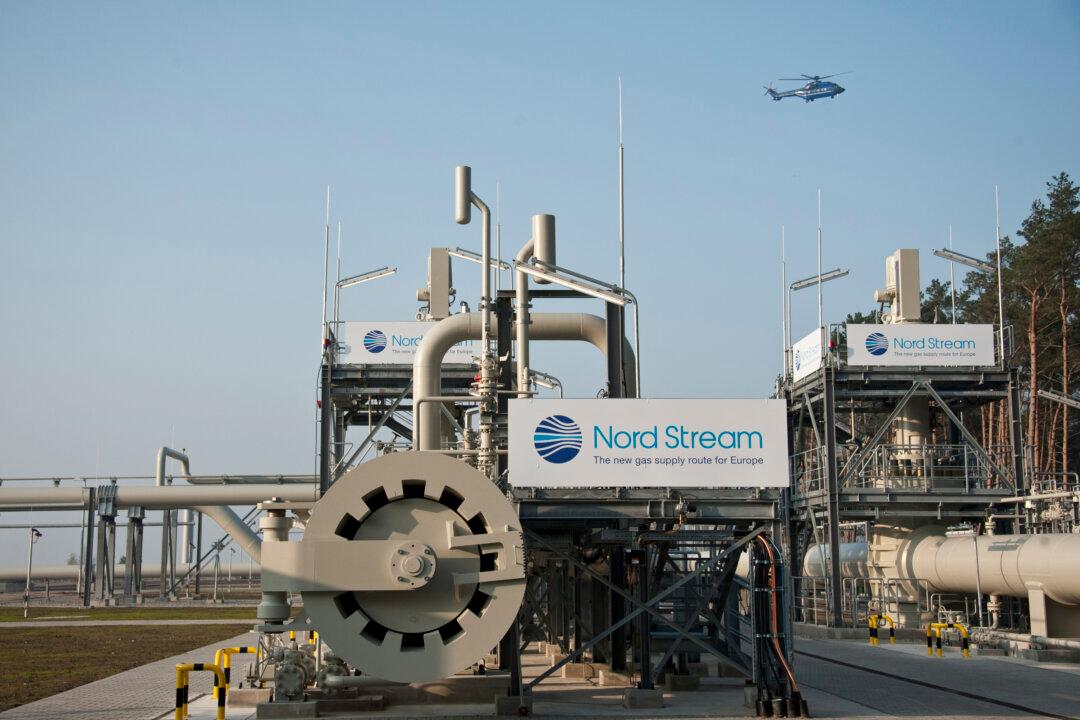Commentary
Viewpoints
Opinion
Russian Energy Cuts to Europe Will Benefit American Exports
Europe’s energy supply is stifled by Russia in retaliation for European support to Ukraine

A helicopter flies over the terminal of the Nord Stream gas pipeline, the primary conduit of Russian gas to Europe, in Lubmin, Germany, on Nov. 8, 2011. John MacDougall/AFP via Getty Images




